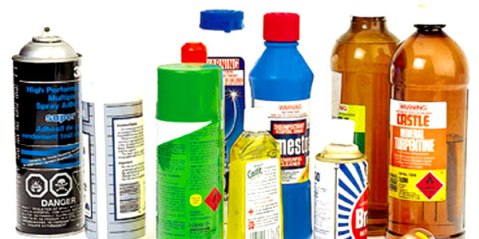Head Out to Sea Without Injury
Water sports, relaxing in the sun and splashing in the water are great ways to make memories with family and friends. Sea lovers must be careful near the marina and dock, though, to assure that their getaways are safe ones. If you are hitting the opening waters this season, don’t forget these safety tips!
Dock Safety
- Use forward and reverse at an idle speed when docking and moving your boat near the marina.
- Have bumpers, mooring lines and boat hooks ready before docking.
- Keep all body parts in the boat until you have come to a complete stop.
- Tie the line that holds the boat against the wind first when docking.
- Dock at a marina that has stand pipes, fire extinguishers, good lighting, surveillance cameras and security measures in place.
- Always wear personal flotation devices when on the water, especially those than cannot swim and children.
- Do not swim near a marina since boaters cannot see you when they are trying to dock.
- Wear non-slip shoes on the boat and dock.
- When leaving your boat, turn off any portable heaters on board.
- Keep your boat in good condition with all equipment meeting safety standards established in your area.
- Assure that the marina has the proper power voltage for your boat.
- Add fuel to portable tanks on the dock only; never on the deck of your boat.
To avoid a potential fire onboard, inspect fuel hoses and containers on a regular basis to prevent the escaping vapors from going into bilges. Also check the wiring and all appliances on deck for damage frequently.
As a safety precaution, keep fire extinguishers on deck and fit smoke detectors to the cabin.
For more information regarding boat safety and your insurance, contact your agent.
Diminish Household Product Dangers
Some of the most dangerous drugs aren’t found out on the street, they are right under your kitchen sink. In fact, most common household products pose some danger if they are inhaled. Since the chemicals in inhalants enter the lungs in such high concentrations, they can have a more toxic affect than any other type of abused drug. Therefore, it is important to always follow the manufacturer’s instructions for safe use and to keep chemicals out of reach of children.
Dangerous Products
These products are just some of the household chemicals that pose a danger to you and your family if they are inhaled into your lungs:
- Gasoline
- Paint thinners and removers
- Glues and adhesives
- Spray paint
- Hair spray
- Deodorant spray
- Lighter fluid
- Nail polish remover
- Permanent markers
- Household cleaners such as glass cleaner, wood polish and soap scum remover
Symptoms and Health Effects
If you have inhaled a dangerous chemical, you may exhibit one or more of these symptoms:
- Spots or sores around your mouth
- Red or runny eyes and nose
- Dazed or dizzy appearance
- Nausea and loss of appetite
Over time, your body can suffer major health effects from inhaling household chemicals such as:
- Loss of memory and concentration
- Hearing loss
- Muscle spasms
- Permanent brain damage
- Death
For more information on household dangers, contact your insurance agent.
Stairs and Depression
Take Care on the Stairs!
Do you take the stairs? It doesn’t seem that risky but according to The American National Council on Compensation Insurance, falls are the second-most costly injury, making them more common than they appear! Whether using the stairs on the job or at home, practice the following safety tips to avoid a tumble:
- Always use handrails.
- Turn on lights when going up and down.
- Keep stairways free of clutter and debris.

- Before going up or down, check for worn or loose carpeting, or protruding carpet tacks.
- Familiarize yourself with the length of the staircase so you do not mistake the bottom step for a flat surface and lose your balance.
- Wear footwear with adequate traction to prevent sliding.
- Do not carry loads that block your vision. Instead, carry smaller loads that allow you see in front of you.
What to Do if You’re Feeling Blue
Everyone experiences sadness from time to time, especially after a loss or an upsetting event. Typically, these feelings tend to fade and life returns to normal. However, if sadness or the loss of interest in normal activities lasts longer than a few weeks, you may be suffering from depression.
Depression affects people from all walks of life, and if left untreated, can be debilitating. How do you know if you are depressed? Here are some common symptoms:
- Decreased energy levels
- Feelings of fatigue
- Irregular sleeping and eating patterns
- Difficulty concentrating, remembering things and making decisions
- Feelings of guilt, worthlessness and helplessness
- Chronic aches and pains that do not respond to medical treatment
If you think you are suffering from depression, do not allow it to control your home and work life. Get back on track by talking with your physician. For questions regarding your life insurance, contact your agent.
Safe Open House
Slip and fall accidents during an open house are every realtor’s nightmare. The good news is that most are preventable. Keep these tips in mind to ensure your open house goes smoothly:
- Have guests keep their shoes on. They provide better traction on wood and tile flooring. Avoid over-the-shoe booties if possible.
- Do not wax floors immediately before an open house.
- In the winter, clear any pathways leading up to the front door and have guests remove all snow from their shoes upon entering the house.
- Remove any clutter on and around stairways, especially if the layout of the stairs is unconventional.
This can pose as a risk on your insurance, even when you’re trying to sell the house. Contact your agent for more tips to keep yourself (and your guests) safe during the winter season.
Halloween Safety
|
Halloween is a wonderful time of year for children to express their creativity and use their imagination. Unfortunately, Halloween can also be dangerous for youngsters if parents do not take the proper precautions to protect their children. Before you let your kids out for the night to show off their Haloween costumers and collect as much candy to scare the dentist away, be sure that they are fully equipped for a safe night of trick-or-treating. Here are some tips to help you do just that.
These are just a few tips that can keep your kids, young and old, out of harm’s way. Taking those extra steps can keep the magic alive this Halloween season. Halloween is a time for fun and games, not insurance claims. For more ways to avoid a “Halloween” claim in Michigan, contact your insurance agent. |
Filing an Insurance Claim? Watch What You Say!
Filing Claims 101: All You Need to Know!
Many people are flustered when they file an insurance claim given that claims typically follow devastating events like car accidents, illnesses or home fires.
To help you file a claim in Michigan with ease, below is some useful information you need to make the best of this trying experience.
Navigating an insurance claim can be quite tricky if you are unsure how to approach it. Consider the following recommendations to increase the chance that your claims will be processed successfully. Better yet, put these tips in your wallet or post them on your fridge.
When you are involved in an automobile accident
- Do not apologize to other drivers involved or admit fault under any circumstances.
- Describe what occurred to law enforcement and to your insurance company. If you are unsure, leave it to the authorities.
- Always contact your insurance company immediately after an auto accident.
- Do not talk to the other driver’s insurance company; let your company represent you throughout the ordeal.
When your home is flooded
- The term flood in the insurance world refers to water damage resulting from an overflow of a nearby stream or river. Even if your sump pump did not work and you have 6 inches of water in your basement, you are not dealing with a flood.
- Making references to the wrong terms can cause claims to be denied or elongate the process.
- Review your Homeowners Insurance policy to determine what it covers with regard to water damage.
- Do not guess how accidents occurred. An insurance investigator will determine the exact cause of the claim in question.
When you have a health care claim:
- Avoid calling procedures experimental, investigational or a clinical trial. The claim may be denied if the treatment is seen as unnecessary.
- Do not sign any medical record releases. It is illegal for an insurance company to access your records without your consent, and they should not need them to process the claim.
The most important thing to remember when filing a claim is that the less you say the better. Do not speculate and do not judge; simply give the facts and the insurance company will take care of the rest.
Feel free to contact your agent for assistance throughout the claims process.
Falling Got You Down at Home?
Falls are one of the most common and dangerous accidents that occur at home and on the job. As you age, the consequences of a bad fall can be quite serious, from broken bones to head injuries. Plus, having a fear of falling can be limiting. Your Michigan home insurance expects you to create a safe environment to help prevent these incidents from happening. Consider these factors to prevent falls in your home:
Fall Prevention Questions
Ask yourself the following to determine if you are at risk of falling in your home:
- Can you clearly see the outline of each step when descending? Avoid installing deep-pile carpeting or carpets with intense patterns on staircases.
- Are light switches installed on both the top and bottom of the staircases? If so, are they in proper working order?
- Do all of the staircases in your home have securely fastened handrails on both sides? They should extend beyond the top and bottom of the staircase and the ends should not turn inward.
- When walking up and down the stairs, do you wrap your hand completely around the railing? You should be able to, if the rail is rounded and is approximately one to two inches away from the wall.
- Are carpets and runners fastened securely to the floor?
- Are the stair surfaces even and flat, and free of metal strips or rubber mats?
- Is clutter removed from staircases?
- Are all of your staircases – and especially outdoors – free of holes, cracks or dips?
If you answered ‘yes’ to all of these questions, then you’ve taken proactive measures to reduce your risk of falling on a staircase. The above situations are of the most common reasons reported as Michigan insurance claims. Prevention is key to avoiding a tumble.
If you do take a big tumble, here’s what you need to know:
- Call for help before trying to get up.
- Cover yourself with a blanket, coat or rug while waiting for help so you stay warm.
- Visit your doctor to assure that you have not sustained serious injuries.
Contact your Michigan home insurance agent for more tips on keeping you safe in your own home.








